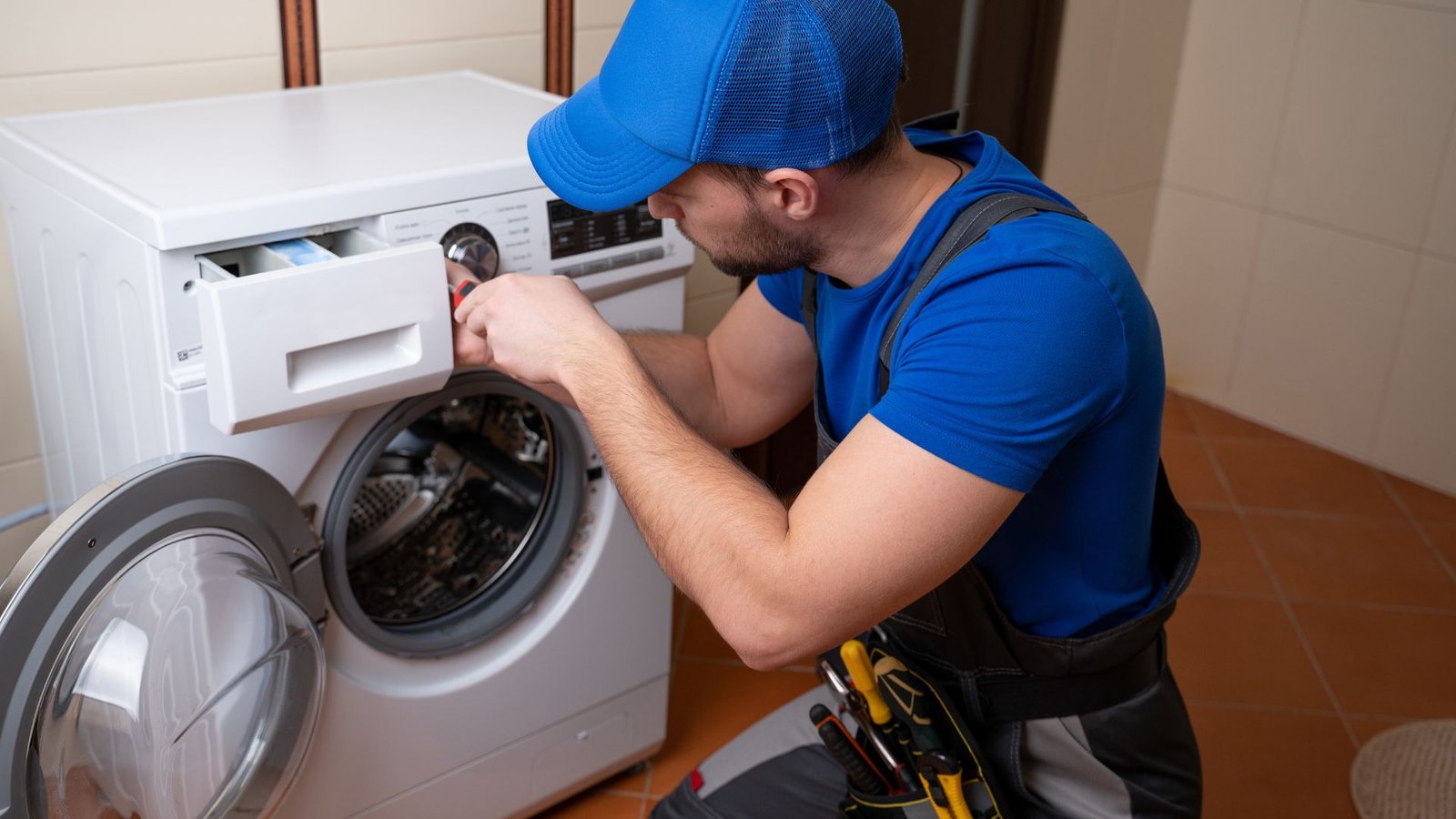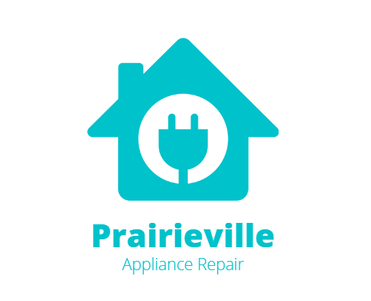 When facing a malfunctioning washing machine, we recognize the initial instinct to seek a quick fix. However, determining whether to repair or replace your appliance is a decision that warrants careful consideration. Factors like the age of the machine, the extent of the damage, and the cost of repairs all play an important role in making an informed choice. But what about the less obvious factors that could impact your decision-making process? Let’s explore some key points to help you navigate this challenging dilemma.
When facing a malfunctioning washing machine, we recognize the initial instinct to seek a quick fix. However, determining whether to repair or replace your appliance is a decision that warrants careful consideration. Factors like the age of the machine, the extent of the damage, and the cost of repairs all play an important role in making an informed choice. But what about the less obvious factors that could impact your decision-making process? Let’s explore some key points to help you navigate this challenging dilemma.
Key Takeaways
- Consider age: Machines over 10-15 years old may need replacement for efficiency and features.
- Evaluate damage: Repair minor issues, replace major parts, or consider a new machine for extensive damage.
- Calculate costs: Compare repair expenses with new machine prices, including labor and replacement parts.
- Energy efficiency: Opt for high Energy Star ratings and advanced features for long-term savings.
- Assess reliability: Check brand reputation, customer reviews, and warranty terms for cost-effective decisions.
Age of the Washing Machine
Evaluating the age of a washing machine is important in determining whether repairing or replacing is the most cost-effective solution. When dealing with washing machine repair in Prairieville, LA, understanding the age of the appliance is significant. Typically, washing machines have a lifespan of about 10-15 years, depending on usage and maintenance. As a collective, we need to take into account the age of the washing machine when evaluating its repair viability.
In Prairieville, LA, if you have a washing machine that’s nearing the end of its typical lifespan and requires frequent repairs, it may be more economical to invest in a new machine. Newer models are often more energy-efficient and come with advanced features that can make laundry tasks easier and faster. However, if your washing machine is relatively new and the repairs needed are minor, opting for repairs may be the wiser choice.
Understanding the age of your washing machine can help you make an informed decision regarding whether to repair or replace it, especially when dealing with washing machine repair in Prairieville, LA.
Extent of the Damage
When evaluating the repair or replacement of a washing machine, the degree of the damage plays a pivotal role in determining the most cost-effective solution. Judging the severity of the damage is vital in making an informed decision. Minor issues like a clogged drain or a loose belt are often simple and inexpensive to fix. However, more serious problems such as a malfunctioning motor, a faulty control board, or a leaking drum can be costly to address.
If the damage is limited to a single component that can be easily replaced, repairing the washing machine may be the most sensible choice. On the other hand, if multiple critical parts are damaged or if the cost of repair approaches or exceeds the price of a new appliance, replacing the unit might be more economical in the long run. It’s important to weigh the extent of the damage against the repair costs to determine the best course of action for your washing machine.
Cost of Repairs
Evaluating the cost of repairs for a washing machine involves calculating the expenses associated with replacing damaged components and labor costs. When determining the cost of repairs, it’s important to take into account the price of replacement parts. Some components, such as motors or control panels, can be pricey. Additionally, labor costs play a significant role in the overall repair expenses. The complexity of the repair, the time required, and the expertise needed by the technician all contribute to the final labor cost.
Moreover, it’s essential to factor in any additional costs that may arise during the repair process. Sometimes, unforeseen issues are discovered once the repair is underway, leading to additional expenses. It’s advisable to inquire about potential hidden costs before proceeding with the repair.
Furthermore, comparing the total cost of repairs with the price of a new washing machine can help in making a well-informed decision. If the cost of repairs is close to or exceeds the price of a new appliance, replacing the washing machine might be the more practical choice.
Energy Efficiency
Evaluating the energy efficiency of a washing machine involves analyzing its power consumption and performance metrics to determine its operational cost effectiveness. The energy efficiency of a washing machine is important as it directly impacts both the environment and your utility bills.
When examining energy efficiency, look for machines with high Energy Star ratings, which indicate lower energy consumption. Front-loading washers are generally more energy-efficient than top-loading ones, as they use less water and require less energy to operate. Additionally, machines with advanced features like load sensors and variable spin speeds can further enhance energy efficiency by adjusting resources based on the load size and fabric type.
Opting for a washing machine with a high Modified Energy Factor (MEF) and Water Factor (WF) can also contribute to energy savings. Understanding these energy efficiency factors can help you make an informed decision on whether to repair or replace your washing machine to minimize long-term operational costs.
Reliability and Warranty
Analyzing the reliability and warranty of a washing machine is important for determining the long-term cost-effectiveness of owning and maintaining the appliance. When considering reliability, it’s essential to look at the brand’s reputation for producing durable machines. Reliable washing machines are less likely to break down frequently, saving you money on repairs and replacements in the long run. Checking customer reviews and ratings can provide valuable insights into the reliability of different models.
Furthermore, evaluating the warranty offered with a washing machine is crucial. Warranties vary between manufacturers and models, so understanding the terms is necessary. A comprehensive warranty can cover parts and labor for an extended period, offering peace of mind and potentially reducing out-of-pocket expenses for repairs. Some warranties even include additional benefits like free maintenance services.
Prioritizing machines with longer and more inclusive warranties can safeguard your investment and reduce future costs. Remember, a reliable machine with a robust warranty can significantly impact the overall value and longevity of your washing machine.
Frequently Asked Questions
Can I Use DIY Methods to Repair My Washing Machine?
Yes, we can use DIY methods to repair a washing machine depending on the issue. Simple tasks like unclogging a drain or replacing a faulty hose can often be done at home with the right tools and guidance.
How Often Should I Clean My Washing Machine?
We recommend cleaning your washing machine every 2-4 weeks to prevent mold, mildew, and odors. Use a mixture of vinegar and baking soda for a natural cleaning solution. Wipe down the rubber gasket, detergent drawer, and drum regularly.
Are There Any Environmental Impacts to Consider?
Considering environmental impacts is essential. We aim to reduce our footprint by opting for energy-efficient models or repairing when possible. Recycling old machines responsibly also lessens waste. Let’s make eco-conscious choices for a sustainable future.
Is It Safe to Continue Using a Leaking Washing Machine?
Yes, it’s unsafe to use a leaking washing machine due to potential electrical hazards, water damage, and mold growth. We recommend addressing the issue promptly to guarantee safety and prevent further damage.
What Are Common Signs of Wear and Tear on a Washing Machine?
Common signs of wear and tear on a washing machine include excessive noise during operation, leaks, failure to drain, and unbalanced spinning. Regular maintenance can help extend the lifespan of the appliance.
Conclusion
To sum up, when it comes to deciding whether to repair or replace your washing machine, remember to weigh the age, damage, cost of repairs, energy efficiency, reliability, and warranty coverage.
Like a well-oiled machine, make a calculated decision that keeps your laundry routine running smoothly and efficiently.
Don’t let your decision spin out of control – choose wisely for long-term satisfaction.
